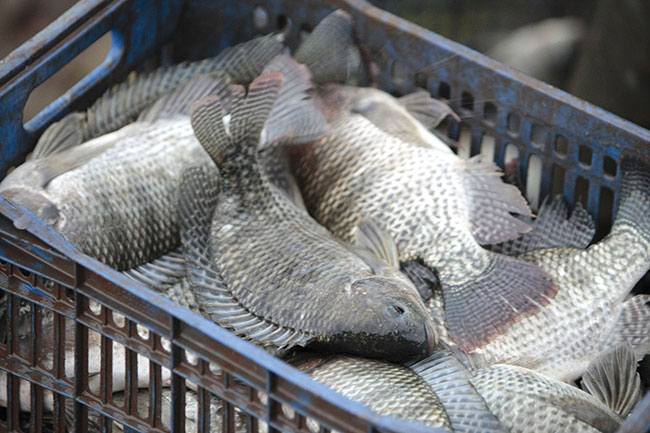
Report: Global aquaculture on record breaking run despite pandemic
June 10, 2020
By Nestor Arellano

Worldwide aquaculture production is on track to exceed previous harvest years in the decade ahead, according to projections in the latest report from the Food and Agriculture Organization of the United Nations.
Total fish production is set to increase to 204 million tons in 2030, up 15 per cent from 2018, with aquaculture’s share growing from its current 46 per cent according to The State of World Fisheries and Aquaculture (SOFIA).
The projected growth is around half the increase recorded in the previous decade. It translates into an annual per capita fish food consumption that is forecasted to reach 21.5 kilograms by 2030.
Some key numbers from SOFIA 2020:
- Total global fish production in 2018: 179 million tons
- Share of that from marine capture fisheries: 84.4 million tons
- From freshwater capture fisheries: 12.0 million tons, a record
- From aquaculture: 82.1 million tons, a new high
- Amount of production consumed by humans as food: 156 million tons
- First-sale value of all fisheries and aquaculture production in 2018: $401 billion. Share of that from aquaculture is $250 billion
- Number of people employed in the primary sector of fisheries and aquaculture: 59.5 million, of whom 14 per cent are women
Asia made up 85 per cent of the world’s fishers and fish farmers.
China is the largest producer due to its highly-developed aquaculture industry. China’s aquaculture industry “produced more farmed aquatic food than the rest of the world combined since 1991,” the report said.
The FAO said its upbeat forecast comes in even as the COVID-19 pandemic had critically disrupted aquaculture and fisheries operations.
“While SOFIA is based on information before COVID-19, the baseline information it provides is already helping FAO respond with technical solutions and targeted interventions for fisheries and agriculture, which the Director-General noted is one of the sectors most impacted by the pandemic,” according to the report.
It is estimated that global fishing activity may have declined by around 6.5 per cent as a result of restrictions and labor shortages due to the pandemic.
“The disruption of international transport has impacted particularly on aquaculture production for export, while greatly reduced tourism and restaurant closures have dramatically impacted distribution channels for many fish types, although retail sales have remained stable or increased for frozen, canned, marinated and smoked fish with a longer shelf life,” the report said.
Manuel Barange, director of the FAO Fisheries and Aquaculture Department, said that proper aquaculture management and sustainable practices will be important in the future if aquaculture is to continue its upward surge.
He said SOFIA provides growing evidence that while effective fisheries management results in robust or rebuilding of fish stocks, failure to implement these measures threaten their contributions to food security and livelihoods.
The underlying reasons for sustainability failures are complex and need tailored solutions, he said.
For instance, some 34.2 per cent of fish stocks are now fished at biologically unsustainable levels, according to SOFIA’s benchmark analysis.
“The improvement, the fruit of contributions from many stakeholders, attest to the importance of active management to reach and maintain biological sustainability, and serves to underscore how urgently we must replicate such approaches in fisheries and regions where management systems are in poor shape,” said Barange.”Not surprisingly, we notice that sustainability is particularly difficult in places where hunger, poverty and conflict exist, but there is no alternative to sustainable solutions.”
Advertisement
- Advocates call on stakeholder support for AQUAA Act
- Ocean Wise partners with Kuterra in seafood program





